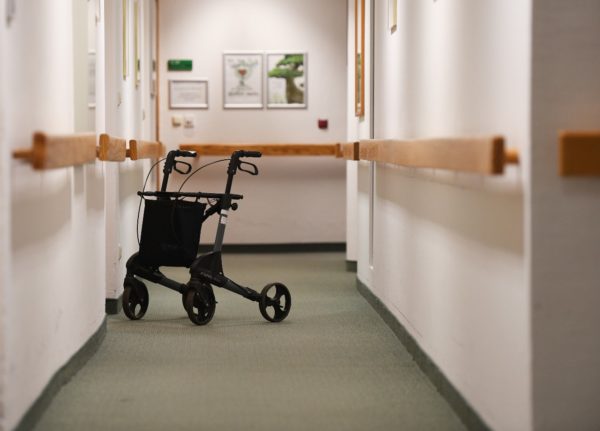The Social Democrats (SPD) wants to introduce a compulsory period of social service for young people in Germany – with a minimum duration of three months – after parliamentarians return from summer recess.
Explaining the reasons for the move in the regional Rheinische Post, SPD vice chairman Dirk Wiese stated: “We need more respect in our dealings and stronger togetherness in the country.”
He said both of these were dwindling “in daily contact and digitally, in open-air swimming pools, in the failure to form rescue lanes, in everyday life or with AfD trolls on the internet”.
READ ALSO: Why Berlin is tightening security at open-air swimming pools
The concept of mandatory social work in the community has been widely discussed in SPD circles and President Frank Walter-Steinmeier (SPD) is known to be a particularly strong advocate of it.
Developed as an alternative to compulsory military service, it foresees young people spending up to a year working in their communities, potentially in a care or nursing home, in a hospital or in another social capacity.
Generally, young people receive a small stipend during their placement to cover basic costs.
Mandatory military service for men aged 18 was in place in Germany between 1956 and 2011, with an alternative ‘Zivildienst’ or civil service option for those who didn’t want to or were unable to join the military.
Both systems were scrapped by former chancellor Angela Merkel (CDU) in 2011, but disputes over whether to bring back some kind of social or military service have been ongoing ever since.
READ ALSO: FACT CHECK: Could Germany bring back military conscription?
Wiese called for a public debate on the issues raised by Walter-Steinmeier in recent years: in particular, who should be eligible for compulsory social service and when it should be completed.
However, he emphasised that the timeframe would be more flexible than it had been in the past.
“A compulsory social service period does not have to last a whole year – but at least three months,” he told the Rheinische Post.
Battlegrounds
Though the SPD sound bullish on mandatory service, they could face a backlash from their own coalition partners – as well the official opposition parties – if they move ahead with plans to introduce it.
Currently, the party is the largest in a three-party coalition alongside the Greens and Free Democrats (FDP) – both of whom have criticised proposals for obligatory social work in the past.
A pledge of the SPD in the 2021 federal elections, the proposal did not make it into the coalition pact after weeks of intensive negotiations.

Meanwhile, the conservative CDU/CSU parties have called for a full compulsory social year that young people would have to undertake after leaving school.
Plans for compulsory social work have been the subject of heated disagreement, with critics pointing out that obligatory work of any kind could be in breach of Germany’s constitution.
Instead, social organisations call for a strengthening of voluntary work in general and an expansion of the currently voluntary social and ecological year systems, for which there are far too few places.
They also point out that expensive infrastructure would have to be built up in order to enforce a compulsory year for everyone.
Vocabulary
Togetherness – (das) Miteinander
Compulsory social service – (der) soziale Pflichtdienst
In our interactions / dealings – im Umgang
Compulsory – Verpflichtend
We’re aiming to help our readers improve their German by translating vocabulary from some of our news stories. Did you find this article useful? Let us know.




 Please whitelist us to continue reading.
Please whitelist us to continue reading.
Member comments